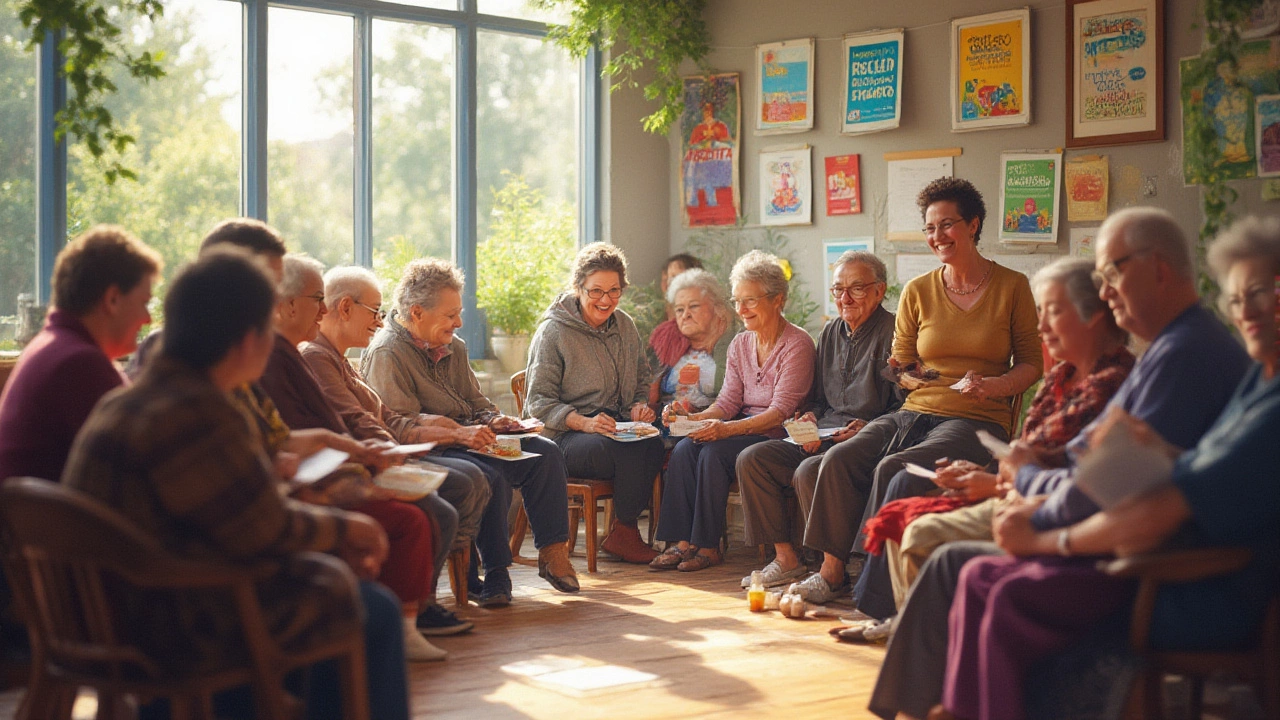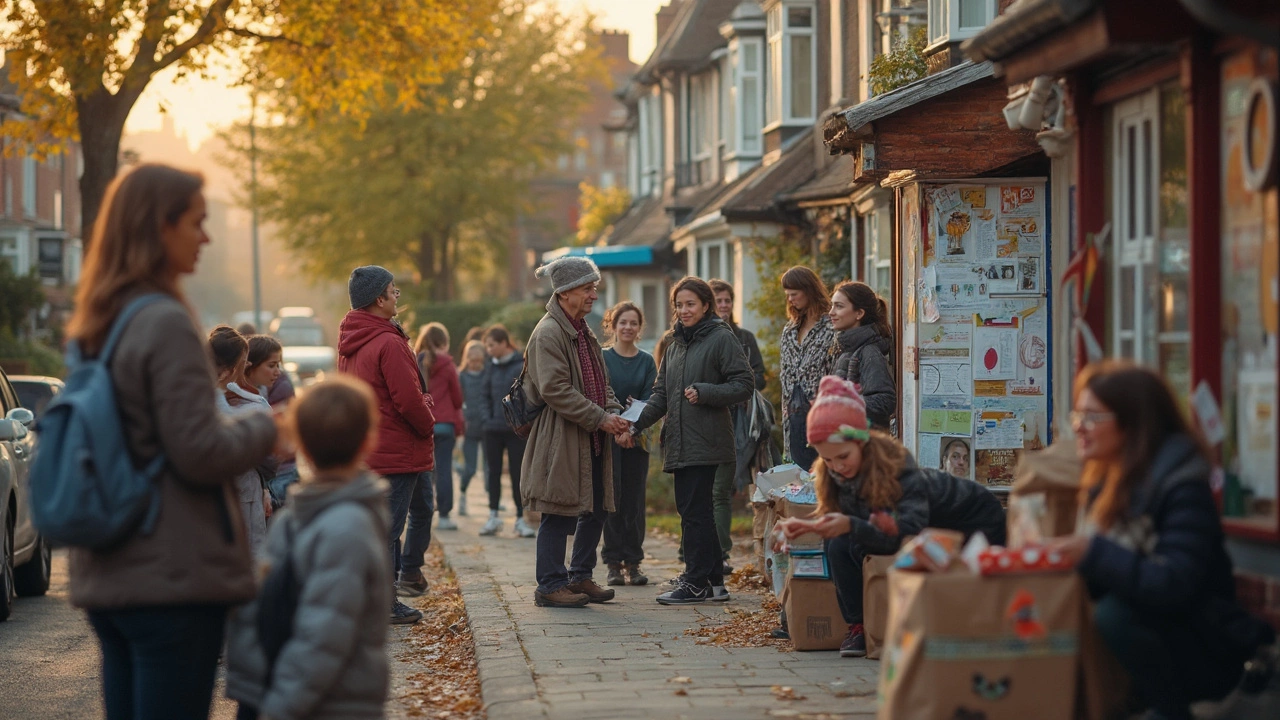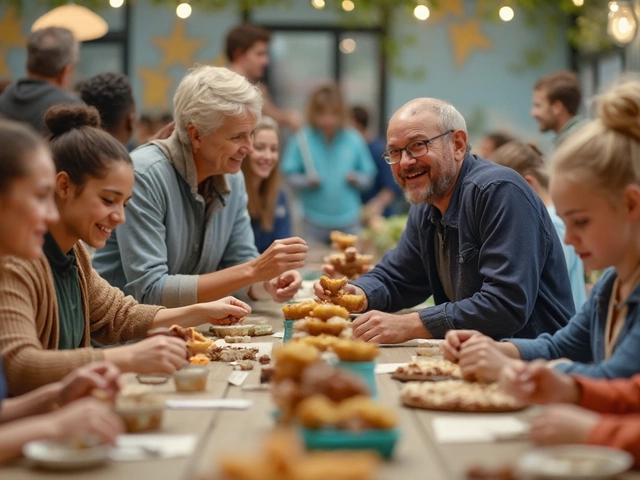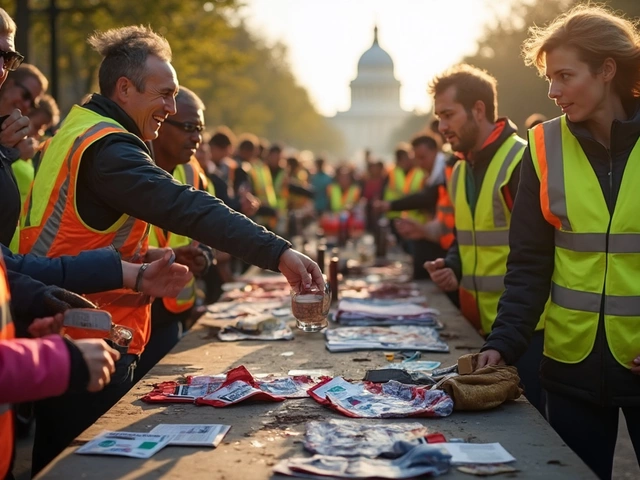Local Support: Practical Ways to Help and Be Helped in Your Community
If you live in Patchway or any nearby town, you already have a network of people ready to lend a hand. Local support means neighbors, churches, schools, and charities working together to solve everyday problems. It’s not a buzzword – it’s the reality you see when a food bank opens its doors or a youth club runs a football night.
First step: look around for groups that already exist. The Holy Family Catholic Church runs weekly soup nights, after‑school clubs, and outreach events. Signing up takes a few minutes and instantly puts you in touch with volunteers who know the area’s needs. Most groups welcome anyone, whether you want to give time, money, or just a friendly smile.
How to Start Volunteering Today
Pick an activity that matches your schedule and skills. If you love working with kids, join a school club or a youth organization like the Big 6. If you prefer hands‑on tasks, help pack care packages for the homeless shelter. Even a single hour a week can make a visible difference and builds connections that last.
When you sign up, ask the coordinator for a quick rundown of what’s expected. Clear instructions save time and avoid misunderstandings. Most groups keep a simple checklist – show up, bring a name badge, and follow safety guidelines. If you’re unsure, volunteer for a trial shift; it’s a low‑pressure way to see if the role fits you.
Getting the Most Out of Community Resources
Local support isn’t only about giving; it’s also about receiving help when you need it. Know the key contacts in your area: the parish office for counseling, the council for housing advice, and the nearest shelter for emergency stays. Keep a small notebook or phone note with phone numbers, opening times, and what each service offers.
When you’re looking for assistance, be specific about your situation. If you need food vouchers, tell the charity exactly what you need – a weekly grocery box, a one‑off emergency parcel, or a longer‑term meal plan. Clear communication speeds up the process and avoids wasted trips.
Don’t underestimate the power of small gestures. Offering to drive a neighbor to a doctor's appointment, sharing a spare chair at a community meeting, or simply listening to someone’s story creates a supportive atmosphere. These actions often spark larger projects, like a neighborhood garden or a shared transport scheme.
Finally, spread the word about what works. If you discover a reliable charity that helps seniors with grocery bills, post a note on the church bulletin or share it on the local Facebook group. The more people know about effective resources, the stronger the whole community becomes.
Local support is a two‑way street. By giving a little of your time or skills, you open doors to help when life throws a curveball your way. Start small, stay consistent, and watch how quickly your neighborhood transforms into a place where everyone looks out for each other.

Primary Aims of Community Outreach Programs: Building Connections and Creating Lasting Impact
Discover the true purpose of community outreach programs, how they address real needs, and why connection matters more than charity. Dive into lasting social impact.
Read More
Community Outreach: What It Really Means and Why It Matters
This article breaks down the real meaning of community outreach. It looks at how reaching out shapes neighborhoods, which groups are involved, and what effective outreach actually looks like. You'll find real-world examples and practical tips for getting involved yourself. Perfect for anyone interested in public service or just wanting to help make their town better.
Read More




